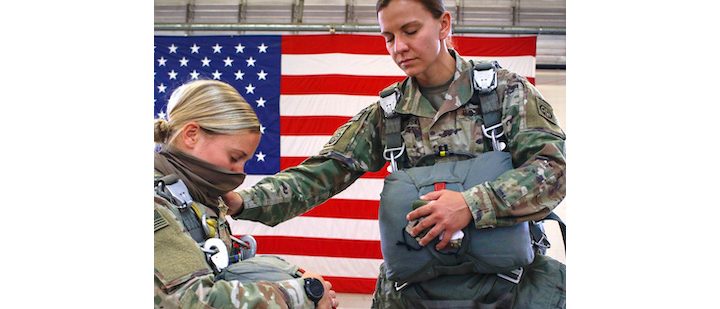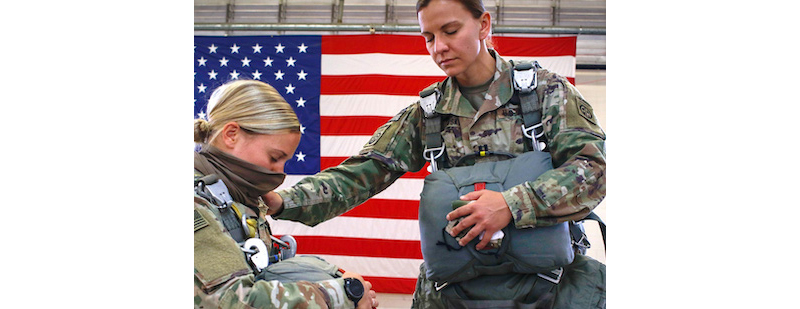American adults who have been served by chaplains hail the ministers for providing compassionate and effective care during some of the most difficult moments of life, a new study shows.
“Most people say the interaction they had with a chaplain was valuable to them — 44% call it very valuable and 32% moderately valuable. Another 17% say it was only a little valuable, while 7% describe it as not valuable at all,” according to a December Gallup survey.
“Additionally, people who have interacted with a chaplain almost universally ascribe positive characteristics to that person, with 95% calling them compassionate and roughly nine in 10 recalling them being a good listener, spiritual, helpful, trustworthy and knowledgeable. Relatively few say the chaplain was intrusive, pushy or condescending,” Gallup reported.
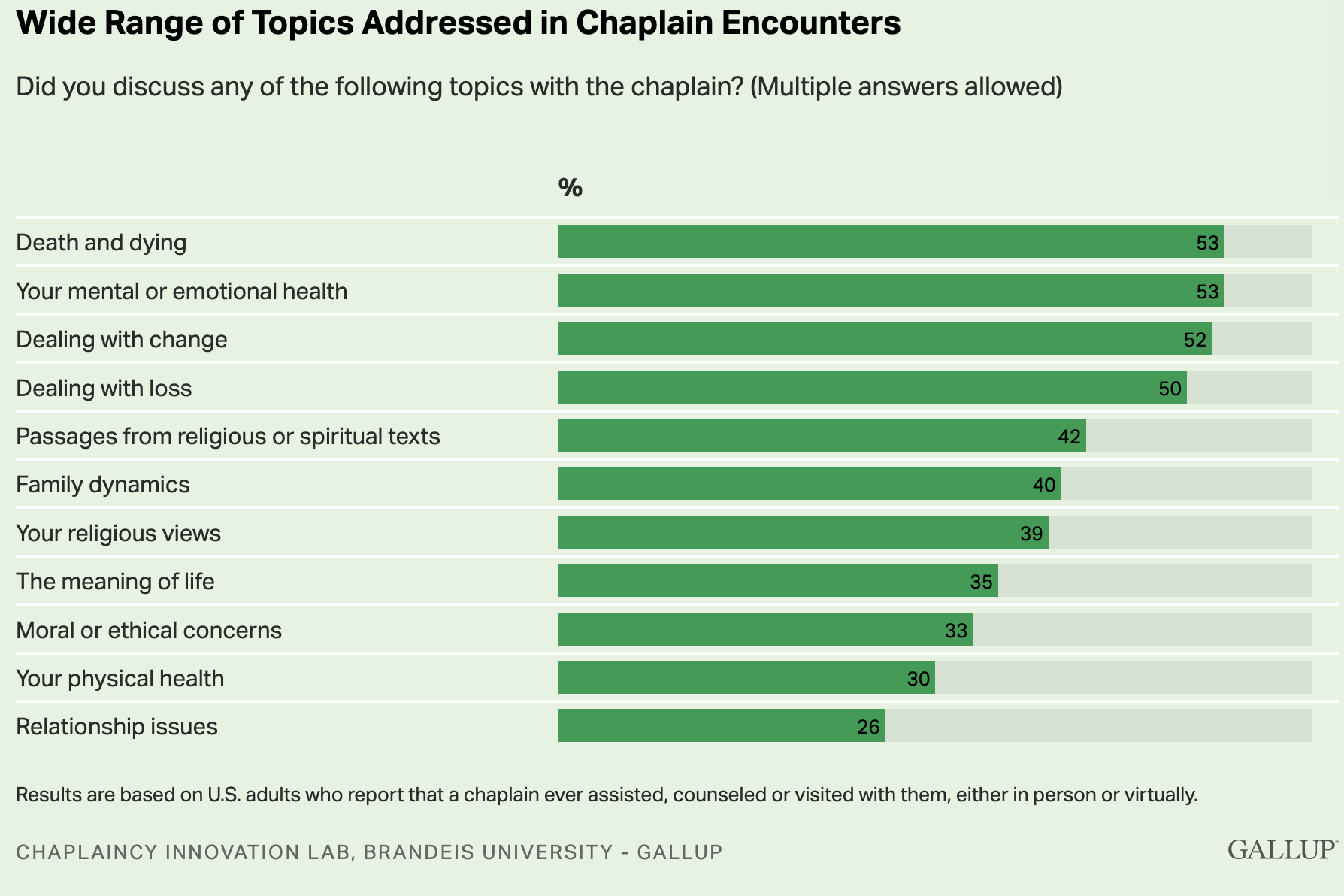
The survey acknowledged chaplains are less visible in society than other clergy who perform weekly services or conduct weddings or funerals: “Many people never encounter a chaplain, but those who do — representing one in four Americans — report that the experience was both positive and beneficial.”
The role and influence of chaplains is unique because they usually operate outside typical faith-based settings, the Gallup researcher explained. “As such, chaplaincy provides an important mechanism for people from diverse religious orientations to receive spiritual care in a moment of need and reportedly in a way that, for most who’ve experienced it, is compassionate and helpful rather than unwelcome or uncomfortable.”
Perhaps unsurprisingly, health care settings are the most common location for encounters with chaplains, Gallup said. “Half of those ever meeting with a chaplain say the encounter occurred in a health care setting, such as a hospital, palliative care facility or hospice. The next most common context is the military, mentioned by 11%, while a variety of other settings are each mentioned by less than 5%.”
Other locations included colleges or universities (4%), correctional facilities (3%) and in disaster relief situations (2%).
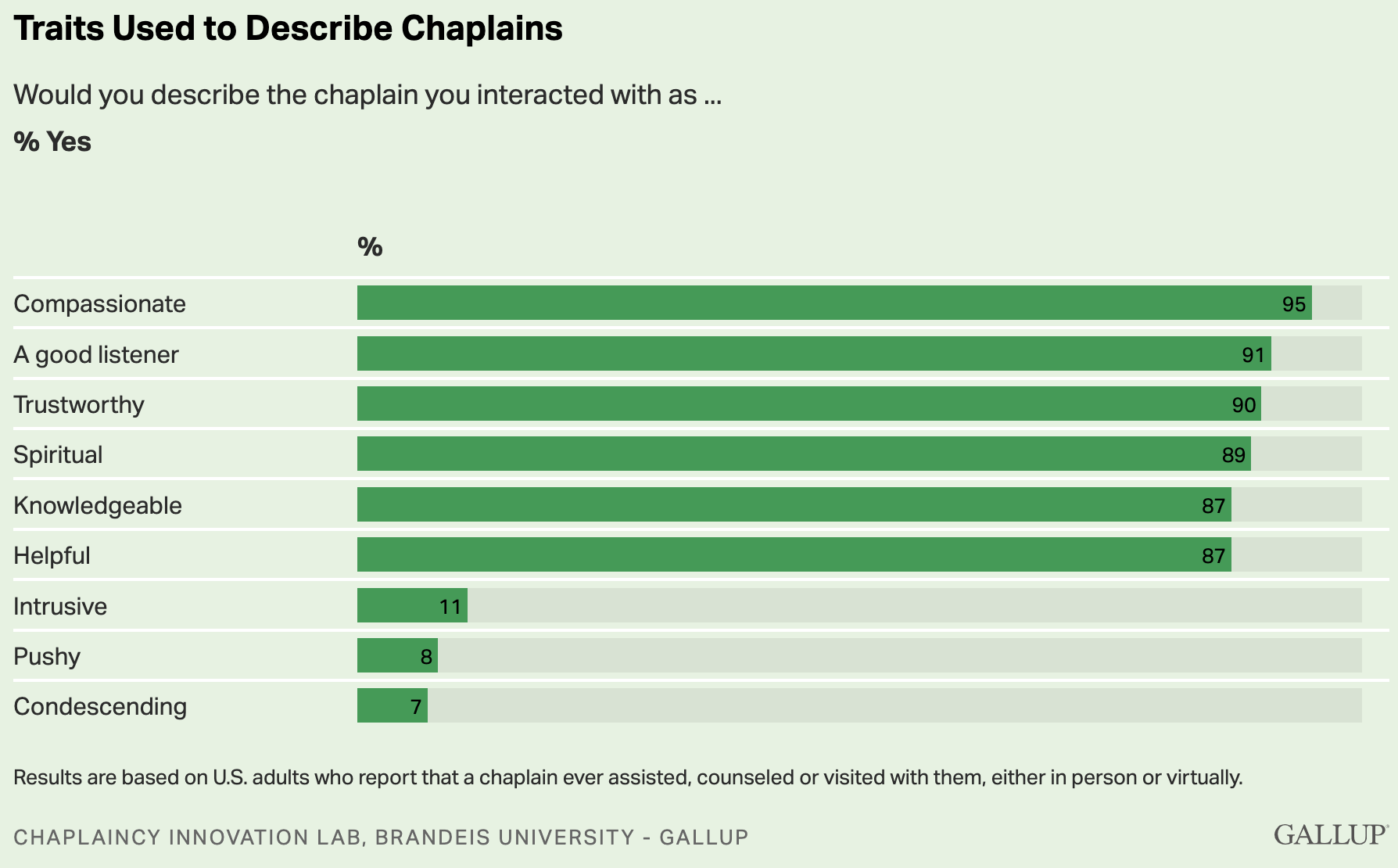
But the frequency of overall interactions with chaplains is relatively low, the survey found. Among the quarter of U.S. adults polled, 7% said encounters occurred in the preceding 12-month period, and the same percentage said the contact happened two to five years earlier. Another 11% said they interacted with a chaplain six or more years ago.
“Most people who have ever interacted with a chaplain say they did so as the primary recipient of the chaplain’s care or support (56%). Others were visiting someone (40%) and/or were caregivers themselves (32%),” according to the survey. “When asked what prompted the encounter, close to half (47%) say it was initiated by the chaplain, while 21% say it was initiated by themselves and 32% by someone else.”
Gallup also found the makeup of U.S. adults who have benefitted from chaplaincy reflects the religious-secular makeup of the nation’s population. Among the respondents, 57% identified themselves as “at least somewhat religious” compared to 17% who described themselves as “not too religious.” A quarter of those surveyed said they were not religious at all.
“The religion of chaplains, as reported by those interacting with them, also mirrors society. The vast majority of people who have been served by a chaplain at some time say the chaplain was from a Christian faith, including 51% Protestant and 21% Roman Catholic. A combined 4% report that the chaplain was some other religion, while 22% aren’t sure what the chaplain’s religion was.”
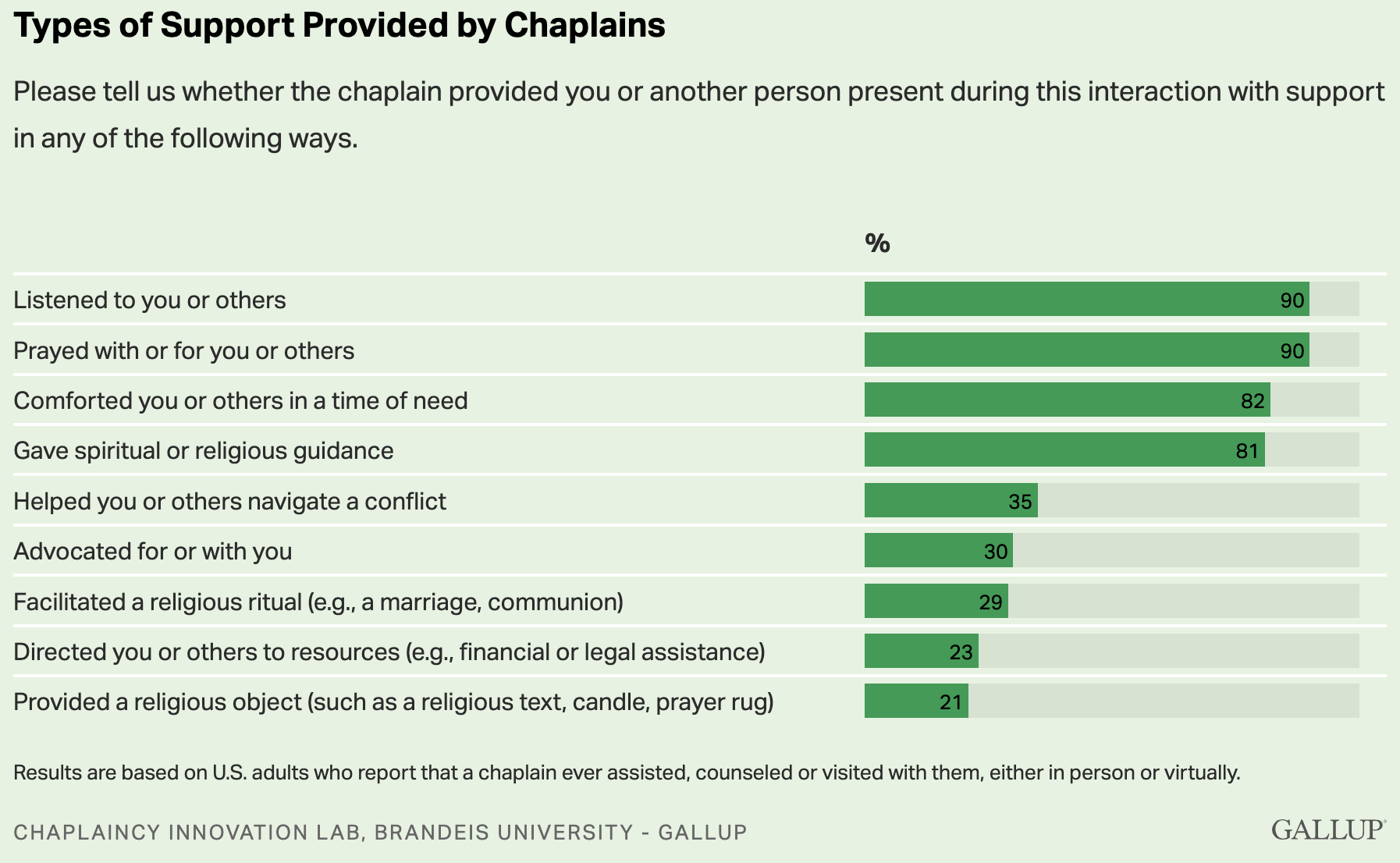
The survey also tracked perceptions of the nature of chaplains’ faith. “Nearly two-thirds perceive that the chaplain’s religious beliefs were either very (36%) or somewhat (27%) similar to their own. The rest either say their religions were different or they are unsure.”
The subjects discussed with chaplains varied widely, although matters of death and dying were the leading topics (at 53%) because health care settings were the main places for those interactions, Gallup said. “Similar proportions say they discussed mental or emotional health (53%), dealing with change (52%), or dealing with loss (50%).”
Other issues included family dynamics (40%), personal religious views (39%), the meaning of life (35%), ethical or moral concerns (33%), personal physical health (30%) and relationship matters (26%).
“Closer to four in 10 adults who have ever interacted with a chaplain say they discussed passages from religious or spiritual texts (42%) as well as their religious views (39%),” the survey found.
The range of support provided by chaplains also was documented by the study: “Nine in 10 say the chaplain listened to them or others or prayed with or for them or others. About eight in 10 say the chaplain offered needed comfort or spiritual or religious guidance.”
Others said chaplains helped them navigate personal crises (35%), perform religious rituals like marriage and communion (29%), provided direction to financial or legal resources (23%) and provided Scripture, candles, prayer rugs and other religious objects (21%).
Altogether, the experiences left most adults with positive impressions of chaplains, Gallup said, including 44% who said these interactions were personally beneficial.
“Additionally, people who have interacted with a chaplain almost universally ascribe positive characteristics to that person, with 95% calling them compassionate and roughly nine in 10 recalling them being a good listener, spiritual, helpful, trustworthy and knowledgeable. Relatively few say the chaplain was intrusive, pushy or condescending.”

